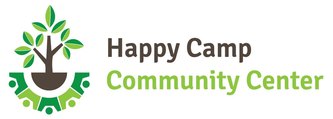|
In today’s parenting climate, having kids is not for the faint of heart. Parents, especially moms, are pelted with advice and recommendations: a “good” mom stimulates her children constantly, taking them to museums and signing them up for character-broadening extracurricular activities. She reads all the current literature on parenting. And she takes primary responsibility for the care and feeding of said children because, as psychology professor Holly Schiffrin notes, “we are the most qualified and you can’t trust anyone else, even husbands, because they won’t do it as well as we do.” It should go without saying that Schiffrin doesn’t necessarily believe that; she’s just summing up some women’s attitudes. But with the never-ending debate over how best to raise our children, it may be time to ask whether all this emphasis on “intense mothering” is making moms unhappy. That’s exactly what Schiffrin and colleagues at the University of Mary Washington, in Fredericksburg, Va., did, looking at whether women who endorse what they call “intensive parenting” beliefs — namely that women parent better than men and that children, viewed as sacred and fulfilling, should rightly be the center of a woman’s world — struggle more with mental health. Their conclusion? Women who insist “mother is best” are less satisfied with their lives. There’s even a term for when intensive parenting results in amped-up stress and guilt: the parenthood paradox. And, undoubtedly, you’ve seen the much-scrutinized piece in the Atlantic musing about women “having it all.” All of it “is saying the way we’re parenting today is taking a toll on women,” says Schiffrin, a study co-author. “We need to find that happy medium — all things in moderation. Yes, you need to be involved with your kids, but the standard we’re holding ourselves to is probably unachievable.” For their study, published recently in the Journal of Child and Family Studies, the researchers relied on a measure of intense mothering, which they developed. It included five categories: stimulation of the kids; the view that mother is best, which the researchers called “essentialism”; the belief that child-centered parenting is really different from two generations ago when children were to be seen and not heard; the idea that children are sacred and should bring joy and love to their parents; the premise that parenting is challenging and exhausting. The researchers looked at 181 moms of kids age 5 and under, and asked them to fill out an Internet questionnaire measuring their opinions about intensive mothering. Even after controlling for social support — help from Grandma, for example — researchers found that intensive mothers were not as happy. Moms who believe parenting is challenging and requires expert knowledge and skills were more stressed and more depressed than moms who didn’t think an arsenal of expertise was mandatory. Moms who think stimulation is necessary and that children are sacred did not show differences from other moms, which surprised Schiffrin. It could be because the “challenging” measure “tended to gobble up the other explanations,” she said. It’s important to note that intensive mothering is not necessarily the province of stay-at-home moms. Whereas the stay-at-home contingent buys into the belief that they have to be hands-on, working moms tend to think that stimulation is paramount. “It’s quantity vs. quality,” says Schiffrin. Truth be told, there’s likely some intensive mothering going on within all of us, at least to some degree. We talk about the importance of having downtime, yet we feel obliged to sign our kids up for a merry-go-round of basketball training–dance classes–piano lessons–chess club–sewing instruction because we’re convinced it’s good for them. And, quite possibly, because their friends are doing it and we don’t want our kids to miss out. Yet, as author Judith Warner observed on Healthland’s partner blog Ideas, this concept of parenting as a competitive sport doesn’t apply to all socioeconomic brackets: As Middlebury sociologist Margaret Nelson has written, parents of “lower educational and professional status” tend to have a very different style of interacting with their children — setting more “nonnegotiable limits” for example, investing a whole lot less in the cultivation of their children’s potentially limitless emotional and intellectual unfolding. This is not (just) because the lower-status women have different sorts of life demands pressing upon their time and other resources; it’s because they have a different idea of good motherhood, one that appears, perhaps, to offer some protection against the perfectionist misery of so many middle- or upper-middle-class moms. It’s also worth reiterating that women who subscribe to this exhausting parenting philosophy — and their numbers are not few — do so because they believe it benefits their children. Next year, Schiffrin hopes to look at whether intensive mothering actually conveys advantages to kids. “A lot of research says children of depressed mothers don’t fare as well,” she says. “If this ideology is making us depressed, it may not benefit kids in the long run.” After so much effort, wouldn’t that outcome be ironic? This article was written by Bonnie Rochman and appeared on Time.com: http://healthland.time.com/2012/08/07/mother-is-best-why-intensive-parenting-makes-moms-more-depressed/ photo by Jamie Grill / Iconica / Getty Images
0 Comments
Leave a Reply. |
AboutHappy Camp Community Action, Inc. is a Non-profit organization dedicated to economic development and youth programs in Happy Camp, California and surrounding communities. Archives
January 2020
Categories |
SERVICES |
Company |
Apart from the free survey software, we also have access to QuestionPro's free survey templates. We've
found many of them useful and powerful to collect insights from various stakeholders of our organization |
